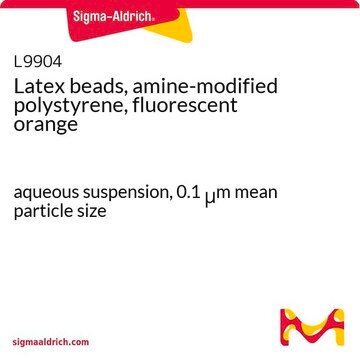L-Carnitine in solution appears to be relatively stable when stored at –20 °C. This kit includes an L-Carnitine standard. When reconstituted, this standard may be stored at –20 °C for 3 months. Serum samples would presumably have similar stability at –20 °C. Serum products that are offered for culture or similar uses, which are stored at –20 °C, have a general shelf life of 3 - 4 years.
See the link below to review the product datasheet for this kit:
https://www.sigmaaldrich.com/deepweb/assets/sigmaaldrich/product/documents/353/360/mak063bul.pdf
MAK063
L-Carnitine Assay Kit
sufficient for 100 colorimetric or fluorometric tests
Synonyme(s) :
Carnitine Quantification Kit
About This Item
Produits recommandés
Utilisation
sufficient for 100 colorimetric or fluorometric tests
Méthode de détection
colorimetric
fluorometric
Température de stockage
−20°C
Description générale
Application
Adéquation
Principe
Mention d'avertissement
Danger
Mentions de danger
Conseils de prudence
Classification des risques
Eye Irrit. 2 - Resp. Sens. 1 - Skin Irrit. 2 - Skin Sens. 1 - STOT SE 3
Organes cibles
Respiratory system
Code de la classe de stockage
10 - Combustible liquids
Point d'éclair (°F)
188.6 °F - closed cup
Point d'éclair (°C)
87 °C - closed cup
Faites votre choix parmi les versions les plus récentes :
Certificats d'analyse (COA)
Vous ne trouvez pas la bonne version ?
Si vous avez besoin d'une version particulière, vous pouvez rechercher un certificat spécifique par le numéro de lot.
Déjà en possession de ce produit ?
Retrouvez la documentation relative aux produits que vous avez récemment achetés dans la Bibliothèque de documents.
Articles
Fatty acid synthesis supports cancer cell proliferation, essential for membrane generation, protein modification, and bioenergetics.
-
for how long can plasma or serum samples be frozen?
1 answer-
Helpful?
-
-
What is the Department of Transportation shipping information for this product?
1 answer-
Transportation information can be found in Section 14 of the product's (M)SDS.To access the shipping information for this material, use the link on the product detail page for the product.
Helpful?
-
-
Can these kits be used with serum samples from mouse?
1 answer-
Yes, this kit can be used on mouse serum samples. We generally recommend that fresh serum samples be used. Frozen samples can probably be used. However, the successful use of frozen samples depends on the efficiency of freezing them and the amount of time they have been frozen. If previously frozen serum samples are used, you may want to check the performance of the kit with fresh vs. frozen samples.
Helpful?
-
Active Filters
Notre équipe de scientifiques dispose d'une expérience dans tous les secteurs de la recherche, notamment en sciences de la vie, science des matériaux, synthèse chimique, chromatographie, analyse et dans de nombreux autres domaines..
Contacter notre Service technique










